Turkey seeks arrest of crime boss at heart of video scandal
[ad_1]
LONDON: Over three decades ago, Ebrahim Raisi made a name for himself overseeing the summary execution of thousands of Iranian political prisoners – an act considered one of Tehran’s first crimes against humanity.
Now the justice of the peace-turned-prosecutor is running for the presidency of the Islamic Republic, and experts have warned that a wave of disqualifications has effectively left the infamous lawyer ahead in a horse race.
In what is set to be one of the most restricted elections in the country, June 18 will see Iranians go to the polls to vote for Hassan Rouhani’s replacement.
Last week, the Council of Guardians (GC), a body accountable to Supreme Leader Ayatollah Khamenei, announced the list of state-sanctioned presidential candidates.
Of the roughly 600 candidates who applied to run for office, a large proportion – some 585 people – were rejected by the Board, including well-known political figures like former President Mahmoud Ahmadinejad and Ali Larijani. , a former speaker of parliament and Commander of the Islamic Revolutionary Guard Corps (IRGC).
There are only seven candidates left: Secretary of the Opportunity Council Mohsen Rezaei; former nuclear negotiator Saeed Jalili; parliamentary vice-president Amir Hossein Ghazizadeh Hashemi; former vice-president Mohsen Mehralizadeh; the governor of the central bank Abdolnasser Hemmati; lawmaker Alireza Zakani; and Raisi, the Chief Justice of the Islamic Republic.
Mirko Giordani, founder of the strategic advisory group Prelia, says the unexpected disqualification of Ali Larijani – previously seen as the only viable alternative to Raisi – reduced the presidential election to a “horse race” in Raisi’s favor.
“Larijani was on the conservative side, but he has become more moderate lately. He was about to be the only possible candidate for Raisi – and even then the latter was supposed to win, â€Giordani told Arab News.
The programming is now so uncompetitive that incumbent Rohani and even Raisi himself have both appealed for a greater variety of candidates.
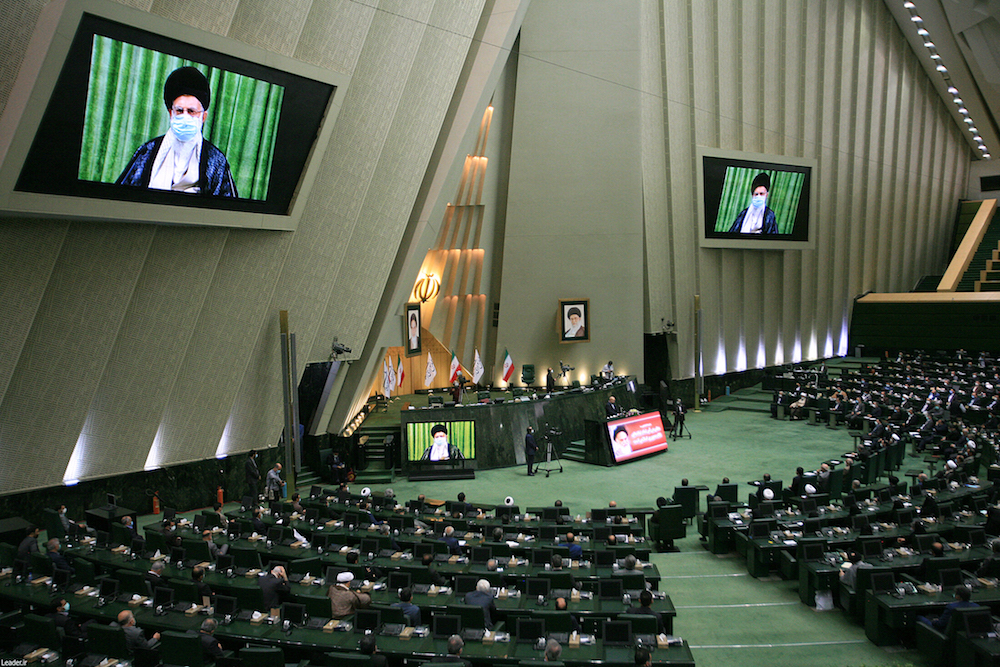
On May 27, 2021, Iranian Supreme Leader Ayatollah Ali Khamenei addressed parliamentarians via a video connection during an online meeting in the Iranian capital Tehran, which urged the Iranians to ignore calls for a boycott presidential election next month, after several hopefuls were barred from running against ultra-conservative candidates. . (AFP)
“Usually, Iranian elections are characterized by their high turnout – around 70% – but the current figures should be around 50%. It’s going to be a big blow in terms of legitimacy, â€said Giordani. “Even if Raisi wins the election, there are going to be a lot of questions asked.â€
During his time as an insider of the Islamic Republic, presidential favorite Raisi oversaw a catalog of human rights violations that have shocked Iranians, rights groups and the international community.
Among those he sentenced to death is champion wrestler Navid Afkari for his alleged role in anti-government protests. His assassination in late 2020 sparked global outrage and protests from world sporting bodies – including the Olympics.
Perhaps his most heinous crime was his direct involvement in the “death commission” which ordered the execution of thousands of political prisoners in 1988. Described as a crime against humanity by Amnesty International, Raisi, then prosecutor Tehran’s deputy, oversaw the mock trials that sentenced thousands to death.
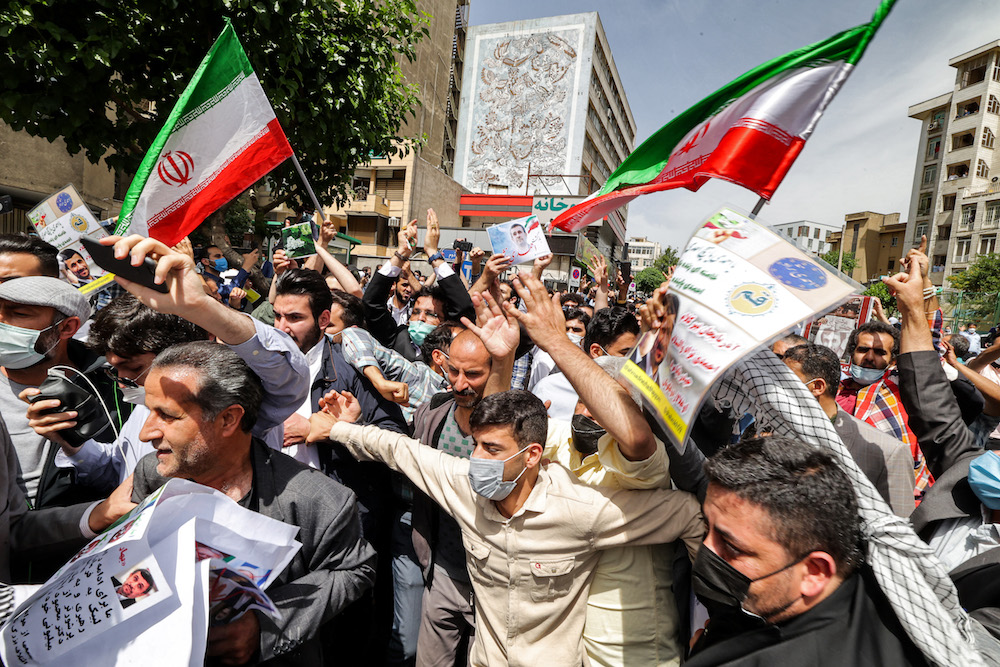
Supporters of former Iranian President Mahmoud Ahmadinejad gather outside the Interior Ministry headquarters in the capital Tehran on May 12, 2021. In what is expected to be one of the country’s most restricted elections, on the 18th June will see Iranians go to the polls to vote. Replacement of Hassan Rohani. (AFP / File Photo)
“Groups of prisoners have been arrested, blindfolded and brought before committees of justice, prosecution, intelligence and prison officials,†Amnesty International reported. “These ‘death commissions’ were nothing like a tribunal and their procedures were summary and arbitrary in the extreme.
“The prisoners were asked questions such as whether they were prepared to repent for their political views, publicly denounce their political groups and declare their loyalty to the Islamic Republic. Some of the cruel questions were asked, for example whether they were prepared to cross an active minefield to assist the military or participate in firing squads.
“They were never told that their answers could sentence them to death.”
The exact number of people killed by Raisi is unknown, but estimates range from 1 to 3,000 in the summer of 1988 alone. Other suspected dissidents have been subjected to torture and harassment.
“Many of those believed to have been implicated in the 1988 murders still hold positions of power,†Amnesty said, with Raisi arguably most important. Now, with the help of the Supreme Leader and the Council of Guardians, he is on his way to the presidency.
“The regime essentially chooses who will be the next president by disqualifying so many candidates who have stood for election,” Meir Javedanfar, Iranian lecturer at IDC Herzliya and former Persian reporter for the BBC, told Arab News. “The chances of one person being upset, or that whoever wins, are low.”
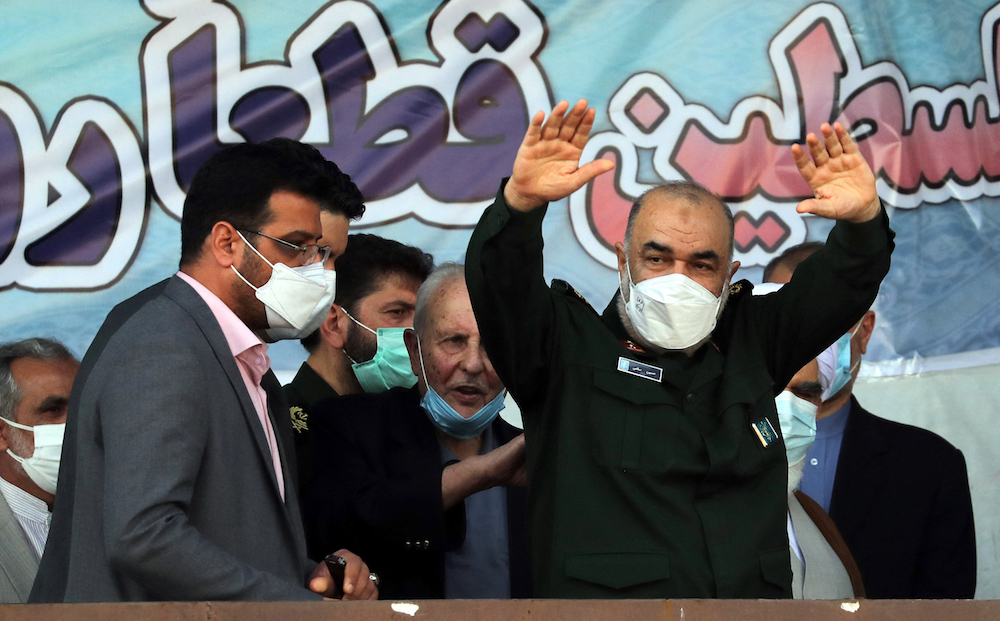
Iranian Revolutionary Guard Corps chief Hossein Salami leaves after delivering a speech during a march condemning the ongoing Israeli airstrikes on the Gaza Strip in Palestine Square in the capital, Tehran, the May 19, 2021 (AFP)
For Javedanfar, Raisi is the candidate for the continuity of the regime.
“A Raisi presidency will mean the pursuit of Ayatollah Khamenei’s foreign policy, which means acrimonious relations with America; continued support for the Iranian presence in Syria, Lebanon, Iraq and Yemen; continue the economy of resistance.
“I also think that we will see a repression of existing freedoms, for example on social networks. I even fear that a Raisi government will set up a national intranet. “
An intranet would allow Tehran to tightly control the flow of online information inside and outside Iran by effectively sealing off the Iranian cybersphere.
“The Islamic Republic is concerned about the dissemination of Western ideas among Iranians, especially feminism. Raisi would be the person to do it, â€Javedanfer said.
Giordani says that a Raisi presidency is likely to focus heavily on eradicating corruption, a trait he said was a hallmark of the Tories’ tenure in the country’s controversial justice system.
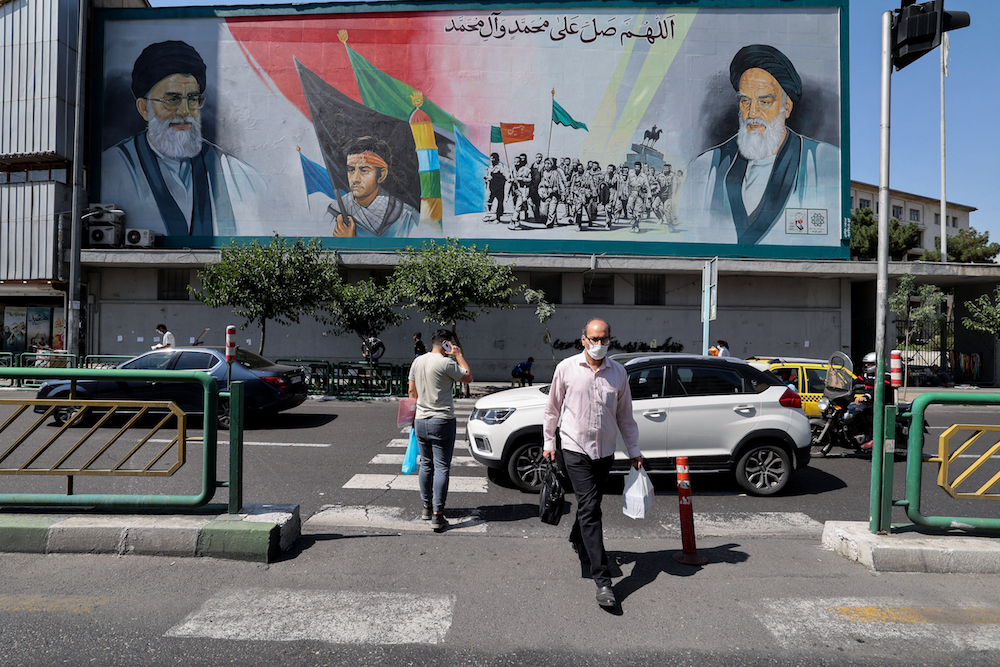
People, masked due to the COVID-19 coronavirus pandemic, walk under a billboard depicting the founder of the Islamic Republic, Ayatollah Ruhollah Khomeini (right) and Supreme Leader Ayatollah Ali Khamenei (at left) in Enghelab Square in the center of the Iranian capital Tehran in May 16 January 2021 (AFP)
Ali Alfoneh, senior researcher at the Washington-based Institute for the Arab States of the Gulf, believes the focus on corruption has always been very selective – and political.
“Raisi has dedicated his tenure as Chief Justice of Iran to engage in a selective fight against corruption,†Alfoneh told Arab News. “Selective because Raisi, for the most part, targeted his political opponents and those close to them.”
Alfoneh also believes that, despite the media attention that the conservative-leaning list of presidential candidates has invited, the distinction “hard” and “reformist” is a misnomer that does not accurately describe the obscure politics of the Iran.
“The hard-line-soft-line dichotomy in Iranian politics is totally wrong,†Alfoneh said. “Due to the lack of formal political parties with written party platforms, the ruling elites of the Islamic Republic are organizing themselves into fluid networks around leaders to ensure personal gain.”
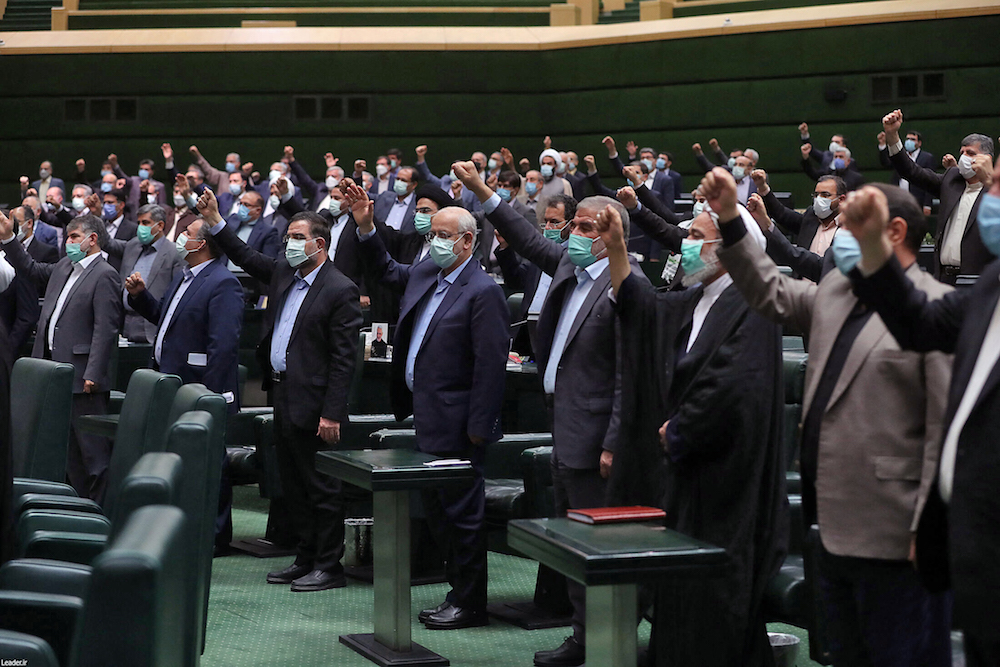
This photo provided by the office of Iranian Supreme Leader Ayatollah Ali Khamenei on May 27, 2021, shows members of the Iranian parliament greeting him via a video connection during an online meeting in the Iranian capital Tehran. (AFP)
Therefore, “personal gain, rather than ideology†is “the organizing principle of Iranian politicsâ€.
Alfoneh shares Giordani’s point of view on the flagrant lack of legitimacy of the June 18 elections in the eyes of the Iranian public.
“The ruling elites of the Islamic Republic are subject to a permanent purge, and over the years the regime has become less representative of the Iranian population,†he said.
“This has already posed problems for a regime which, despite all its authoritarianism, is sensitive to public opinion.”
—————-
Twitter: @CHamillStewart
[ad_2]

